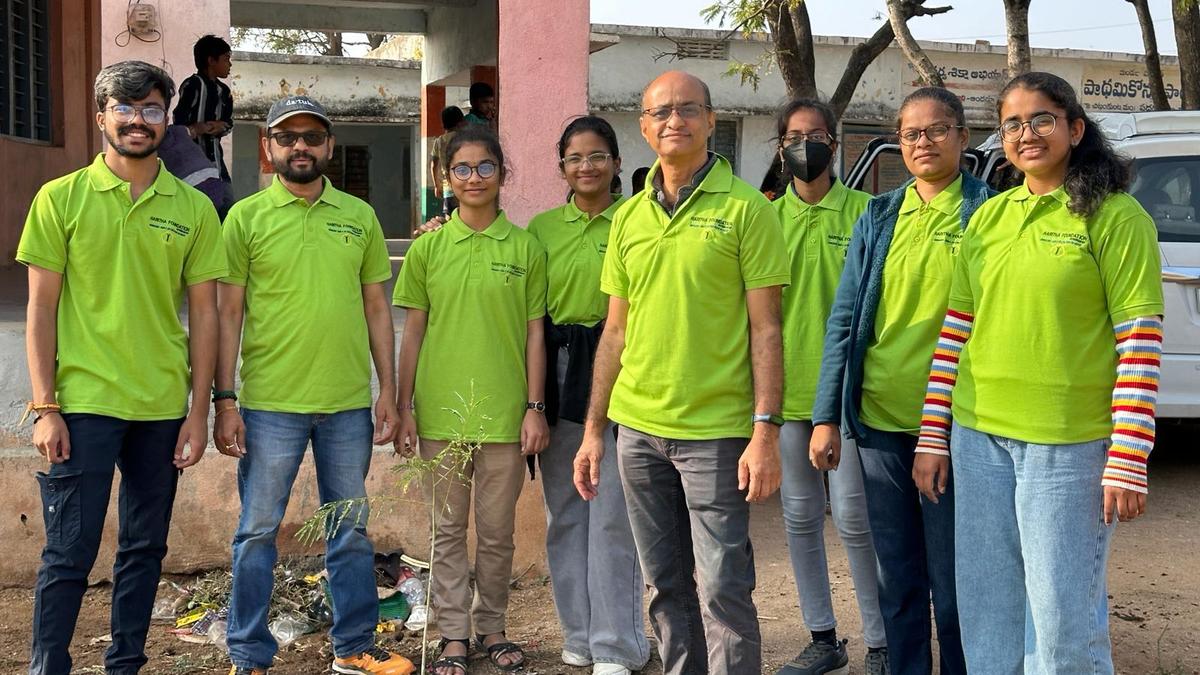
Haritha Foundation empowers change through empathy
The Hindu
Phani Raja Kumar's inspiring journey of giving back to rural communities through Haritha Foundation supported by the JNTUH alumni.
Stories of successful people coming back to improve their communities are aplenty. They are inspiring examples of how such individuals can make an impact on society. One such story is of Phani Raja Kumar, an NRI, and his JNTU, Hyderabad alumni, who initiated a movement through an NGO called Haritha Foundation that addresses critical issues like education and health among the children in rural Telangana and Andhra Pradesh.
The motivation to establish this NGO, Phani says, has been influenced by his personal experiences and observations of society, particularly in Puttaparthi. “In May 2002, I witnessed the initiatives at the Satya Sai Baba ashram and closely examined their educational programmes and healthcare systems offered at no cost. I also saw water projects effectively tailored to the local community. The impact of these experiences on me was undeniable,” says Phani, who organised educational and health camps in Yeddumailaram village and an eye camp in Kandi Village, near Sangareddy, in 2002 as his first charity venture. “Hundreds of students and villagers were positively affected by these camps. The joy and satisfaction among the people and the dedication of the volunteers and local youth were truly inspiring,” says Phani, who involves friends and volunteers in his charity work.
The significant support was from his JNTUH alumni. He has successfully mobilised his alum network, collaborating with his fellow graduates to reach out to less-privileged children. The coming together of the alums has been the biggest accomplishment, and Phani attributes this to their alma mater. He completed his MTech and PhD and is grateful for the invaluable knowledge their entire batch gained in engineering and research and from the professors, colleagues, and friends.
The JNTUH alums have played a significant role in these efforts, enthusiastically joining Phani in serving their alma mater and the broader community. “Some time ago, we conducted a tree plantation programme at schools near Patancheru, which was a meaningful experience. Several professors from JNTUH have been supportive well-wishers and volunteers for our programmes,” he says.
Demonstrating their commitment, the alums have also sponsored a 3D printing lab at JNTU Hyderabad, benefiting research students across the affiliated colleges. This initiative underscores the collective dedication of JNTUH alums to give back and support future generations of students.
Phani’s commitment to rural development is personal. Growing up in Vijayawada and nearby villages; as the son of a school teacher, he experienced firsthand the educational barriers and difficulties that children in these areas face. This intimate knowledge has instilled in him a strong sense of duty to contribute positively to these communities.
Additionally, Phani’s commitment is fuelled by the belief in social justice and equity. “ I am driven by the principle that every child, no matter their geographic or economic background, is entitled to a quality education and the opportunity to succeed. This belief is at the core of why I focused on improving education for rural children, aiming to provide them with the tools and opportunities necessary to rise above their circumstances and achieve their full potential.”











